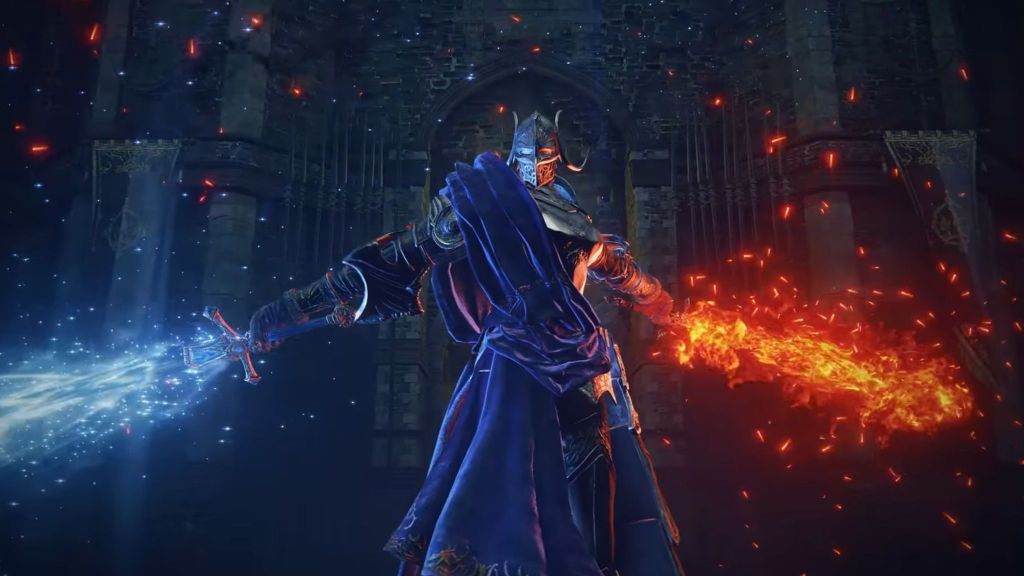The craft of role-playing games once belonged to a very specific and well-defined genre. Building a character from scratch, assigning stat points, picking up lootable gear, and embarking on epic quests used to be the DNA that RPGs were built off of. They were games where numbers were fabled far more than raw reflexes, and where decision often was the determining factor that shaped the final outcome. For a long time, this style of game occupied a specific corner of the industry, separate from fast-paced shooters or high-octane sports titles.
Videos by ComicBook.com
However, as the industry grew larger, those specific boundaries have blurred to the point of vanishing. Today, the core aspects of the RPG genre are all pretty much embedded into nearly every other genre in some fashion. Chances are, you are engaging with an RPG-style progression loop right now without even realizing it. This has been largely well-received, and so, RPG mechanics have become a fundamental part of modern gaming, shaping experiences across genres.
Leveling and Stats Are Everywhere

Leveling systems, once the defining trait of RPGs, have gone totally mainstream. In the past, “leveling up” meant grinding enemies in various ways to gain enough experience points to unlock new abilities and survive even tougher enemies. Now, nearly every popular game uses some form of leveling as a way to pace progression and keep players invested. Shooter franchises like modern Call of Duty and Overwatch reward players with ranks that unlock weapons and perks, all streaming from a single experience point pool that gets progressively larger as you play. Racing titles give experience points for completing events, unlocking faster cars, and more tuning options to refine your racing style. Even puzzle and mobile games display progress meters that drip-feed rewards, mimicking the same dopamine loop that RPG players have known since the genre’s roots of pen and paper.
Stats also play a core role in this newly defined RPG genre. In modern Call of Duty, for example, performance in multiplayer depends just as much on your loadout and weapon attachments as it does on your raw aim and skill. A well-curated assault rifle setup with the right barrel or grip can completely change the outcome of a match, sometimes for or against you. That kind of min-maxing joy is pure classic RPG design, disguised as a standard first-person arena shooter. Sports game franchises like NBA 2K and FIFA also apply similar aspects to player attributes, where understanding how to improve stats like speed and stamina can make all the difference between winning and losing.
Open-world action titles like Assassin’s Creed Odyssey and Ghost of Tsushima also lean heavily on gear-based stat bonuses and skill trees. Equipping the right armor set can give your character stealth advantages or something like higher critical damage. That is exactly the kind of decision-making that defined traditional RPGs. The genre lines have faded, but the mechanics are thriving in plain sight.
Quests, Choices, and the Grind

It’s not just the prospect of stats that has been commandeered by modern gaming trends. The way games present objectives has also changed significantly. What used to be a simple “win this match” or “reach this point” is now today’s long-winding quest, complete with characters, dialogue, and narrative. Fortnite’s seasonal challenges, for example, are tied to a larger, overarching storyline, turning standard routine gameplay into a series of episodic missions. This dress-up of objectives provides additional context to the player, thus creating a more engaging loop, even if that loop really hasn’t changed much from the past. This quest framing comes straight from the RPG playbook, giving players a sense of purpose beyond immediate competition. For many players, this framing is enough to keep them interested, which is why this concept can be found everywhere in the industry.
Choice has also spread far beyond the RPG space. In Call of Duty: Warzone, deciding where to drop, what loot to prioritize, and when to engage can be just as impactful, if not more, due to the ‘luck’ aspect present, as reflex skill. Looter-shooters like Destiny 2 let players choose subclasses, gear sets, and ability loadouts that fundamentally alter how gameplay is approached, further blurring genre boundaries.
Then, there is the traditional aspect of the tried and true RPG grind itself. In classic RPGs, the “grind” often referred to the idea of farming monsters for rare loot or grinding low-level enemies for easy experience. Today, it is just as likely to mean replaying multiplayer matches to earn enough currency for a legendary skin or completing daily objectives for battle pass progress. From Animal Crossing’s resource gathering to Monster Hunter’s targeted hunts, the grind is no longer an RPG-exclusive habit; it is a universal game design strategy that has long since proven that it works.
Personalization Is the New Role-Playing

The very concept of “role-playing” now lives in almost every major game release as a partial result of the above-mentioned aspects of the RPG genre invasion. Competitive titles like Apex Legends allow players to customize characters with unique skins, voice lines, and weapon cosmetics to provide the ability to have a personal touch in the game. This aspect of an RPG is incredibly potent in today’s shared online space, as it allows players individuality in a scene shared by millions of others, who will see their creations. This creates a powerful sense of ownership for the player, which is why you see so many games selling cosmetics through microtransactions and why many games feature a “transmog” system. Sports sims let you design an athlete’s appearance, abilities, and career path in detail. Racing games go beyond speed and handling, letting players choose paint jobs, decals, and body kits that make each car feel personal. Call of Duty allows players to customize their weapons’ appearance with decals and skins. It’s common because the consumer adores creativity, and the developer profits from it. It’s a win-win situation.
Today’s cosmetic systems often link back to progression, encouraging players to unlock skins and various other thematic cosmetics through challenges or standard experience leveling. This gives players an extra incentive to log in and play more often, keeping them around for future content. Live-service titles leverage this very concept to keep players interested in playing the same game with the same general gameplay loop for years. But this idea fuses the enjoyment one gets from obtaining a unique appearance with the mechanical rewards of your standard RPG-style growth, which is why players stay invested. Whether you are chasing a rare armor skin in Destiny 2 or designing your perfect farm in Stardew Valley, you are role-playing, just not in the way older definitions of the genre would expect.
Most modern games reward progression in many ways. They give players the tools to craft their own playstyles and encourage long-term engagement with their characters. This influence of RPG mechanics now stretches well beyond the origins of your typical tabletop. The RPG is assimilating everything from run-of-the-mill shooters to indie life sims, and there is no trajectory of this stopping anytime soon. In 2025, you are role-playing more often than you realize, whether you are wielding a sword, a sniper rifle, or a soccer ball.










